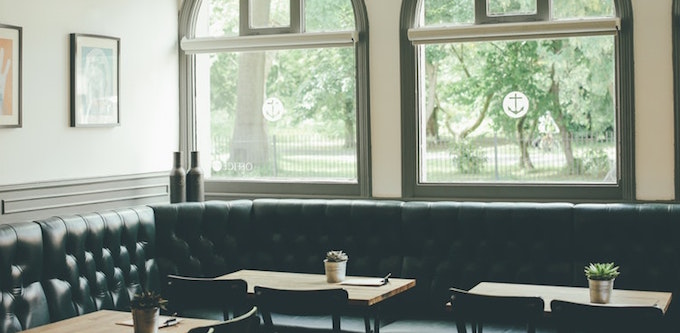
As COVID-19 continues to have a global impact on the food service industry, Australian hospitality owners are encouraged to take some important steps to help them ride out the storm.
Hospitality owners should be looking closely at their last P&L statement to see where the impact will be felt. If sales fall, how will that filter down to expenses? Some can be adjusted, like food costs and labour, but others are fixed, like rent and insurance.
Now’s the time for restaurant and cafe owners to become ‘numbers people’ in a way they usually aren’t. Their focus is usually on the menu, the customers and pushing out food and beverages.
Here are some practical tips and words of advice to help hospitality owners prepare for this unprecedented downturn in business.
Staffing
- Ensure you have a plan in place for letting staff go, if you need to. Who will be first, and what will you owe them? Is it straightforward? If they are permanent, there could be redundancy payments. Do your research and know what to expect.
- Plan your communication with staff. No doubt they will be anxious given the visibility of events across the news. You may not have good news to tell them, but they expect you to be fair. If you don’t have an internal communication system, like a private Facebook or WhatsApp group, now’s the time to start one.
- Be prompt with statements needed to help them get necessary benefits. It’s useful to understand how this works in Australia and will allow your staff to obtain the funds they need to support themselves without work.
- Many staff don’t understand the financial workings of a business, so they need an honest explanation of the P&L; it won’t be pretty, and they need to see that.
- Insist on unwell staff staying away from work. Many will be casual, so no work will equal no pay. They may want to work even if sick, and that’s not okay. Sickness allowance may be available in some cases, but risking the health of other employees is not acceptable.
Contactless service
- Ramp up your home delivery options. Whether it is using third-party systems (if your margins allow these costs), or encouraging pickup through your own online ordering page, offering a takeaway option is critical to keeping your business afloat.
- Upgrade your pick-up and delivery space. People are now wanting ‘no-contact’ collection (i.e. touch payments and hygienic packaging). Watch how big operators like McDonalds modify their systems; they are masters of adaptation and will no doubt show us best practice with this.
- Be sure you practise the highest standards of cleanliness throughout the kitchen and preparation areas. Assure your customers are aware of these efforts to build trust.
- Double your staff training. Provide short, practical sessions on cleaning, hygiene and service. This will have long-lasting benefits beyond the pandemic.
- Blitz your office and admin systems. There is no time for waste and inefficiency. What can be done online that’s still done with paper? What can be done remotely – rostering, payroll, ordering, social media?
- Improve your communication with customers. Customers may not know what you are offering with in-venue dining not available across the country. In this climate, daily updates on Facebook and Instagram are not too frequent, and an interesting weekly newsletter will be welcome, especially if it comes from the heart. As ever, people look to their local cafe or restaurant for comfort and friendship.
- Provide warm and friendly service. Now more important than ever people are wanting to have positive interactions and feel confident in who they are purchasing from.
Other things for hospitality businesses to consider
- Talk to suppliers about deliveries and availability of products. Your orders will be down, and they may have their own staff issues to worry about, which can affect the supply chain as well.
- Plan for staff disruption when schools are closed. With many schools already closing their doors, thought must be given to who will look after children when their parents are at work. It will be a big test of your flexibility.
- You’ll need to handle creditors. Figure out which ones will be tolerant, and who can you negotiate with? They’ll be facing their own problems.
- Check your function booking agreements for cancellation terms. How strict are these agreements and what will you enforce? Do they need to be modified given the current climate.
- Talk to your accountant about tax and bill payments and see what they can negotiate with the Australian Taxation Office.
- Talk to your landlord, ideally through your lawyer about rent payments. You will be making a loss and paying full rent will be difficult. It may help to share your figures and see what arrangement you can come to.
- Find out about government support payments. These are being announced regularly and it will be important to know what will relate to your business.
NOW READ: Inside a fight for survival: Restaurants despair as coronavirus tears through hospitality


COMMENTS
SmartCompany is committed to hosting lively discussions. Help us keep the conversation useful, interesting and welcoming. We aim to publish comments quickly in the interest of promoting robust conversation, but we’re a small team and we deploy filters to protect against legal risk. Occasionally your comment may be held up while it is being reviewed, but we’re working as fast as we can to keep the conversation rolling.
The SmartCompany comment section is members-only content. Please subscribe to leave a comment.
The SmartCompany comment section is members-only content. Please login to leave a comment.